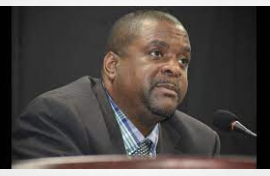Minutes after 12 Miami federal jurors agreed to convict a former British Virgin Islands premier of a drug-trafficking conspiracy, two of them contacted the judge to tell her they really didn’t share the views of the other panelists and changed their minds about the defendant’s guilt.
But it was too late.
U.S. District Judge Kathleen Williams had already polled each of the 12 jurors on their unanimous verdicts and discharged them after each said Thursday that Andrew Fahie was guilty of conspiring to import cocaine into the United States and three related money laundering and racketeering charges.
Now Williams, federal prosecutors and Fahie’s defense attorneys find themselves grappling with an extremely rare, if not unprecedented, legal question: If the jurors were already polled and discharged, can the judge bring them back into court and re-poll them on their trial verdicts?
Historically, in South Florida and other regions of the country, the answer would be no — unless there was some “external pressure” put on the jurors by outsiders or someone on the jury made racist comments about the defendant, Fahie, who is Black. There doesn’t appear to be any evidence of either in the case. Further complicating matters: There are severe restrictions under the Constitution as to how much a judge, prosecutors and defense lawyers can inquire about a jury’s deliberations.
“I’ve looked at all the other cases and, unsurprisingly, there’s none with this exact scenario,” Williams told both sides during an unusual post-verdict hearing in Miami federal court on Monday. “I have extremely limited avenues to explore.”
Federal prosecutors argued that the judge must stick to the four unanimous guilty verdicts by the 12 jurors because they have been discharged of their duties — unless there has been a “mistake” on the verdict form.
“I don’t think there’s a mistake on the verdict form,” said Assistant U.S. Attorney Kevin Gerarde, who argued that “it doesn’t matter” at this point if two of the jurors didn’t agree with the other 10 because they were polled in court and discharged from their duties.
A request for a new juror poll
Fahie’s main defense lawyer, Theresa Van Vliet, acknowledged that she has been unable to find any case that is “spot on” with the post-verdict scenario of her client’s trial, but she urged the judge to poll the two jurors in question, if not all 12.
“We’re not suggesting some free-wheeling inquiry,” Van Vliet told the judge, pointing out that Fahie faces a mandatory minimum sentence of 10 years up to life on the main cocaine-import conspiracy conviction. “All we’re asking is for those two jurors to be brought in and be polled [again].”
Van Vliet also threw a curve ball into the proceeding when she disclosed that one of the two jurors had left a voice mail message on her law firm’s phone. She said that neither she nor Fahie’s second attorney, Joyce Delgado, listened to the recording.
After some discussion, Judge Williams proposed that both sides listen to the voice-mail recording privately and report back to her.
Read more


















